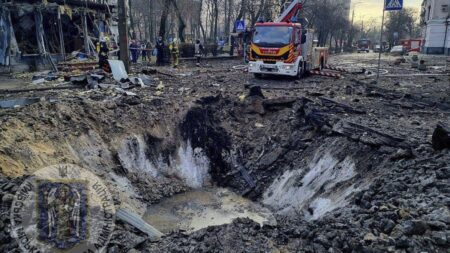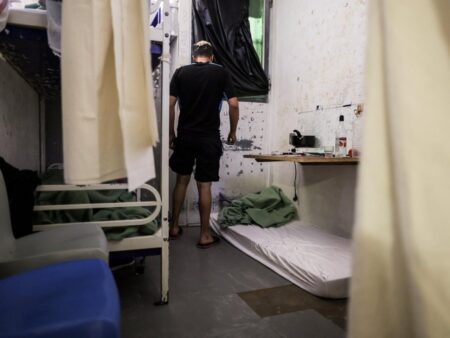In a important move signaling a new chapter in Franco-African relations,France has commenced the handover of military bases to Senegal,marking a pivotal shift in the dynamics of military cooperation between the two nations. this decision, stemming from a long-standing partnership rooted in historical ties and shared security interests, underscores France’s commitment to fostering greater autonomy among its former colonies.As the West African region faces evolving security challenges, the transfer of these bases not onyl reflects France’s strategic recalibration but also highlights Senegal’s growing role as a key player in regional stability efforts. In this article,we delve into the implications of this handover,exploring its impact on bilateral relations,security cooperation,and the broader geopolitical landscape in West Africa.
Frances Strategic Shift in Military Presence in Africa
In a significant move to redefine its military footprint in Africa, France has commenced the handover of several army bases located in Senegal. This strategic decision reflects a broader shift in France’s defense policy, emphasizing a partnership model rather than a dominant military presence. By transferring these bases, France aims to strengthen local security forces and empower African nations to take the lead in their own defense strategies. This transition is part of a larger reconfiguration of France’s military operations across the continent,which has been prompted by evolving geopolitical dynamics and increasing calls for local autonomy.
The handover includes various facilities that have long served as cornerstone posts for French operations in West Africa. Key highlights of the transition process include:
- Enhanced Training programs: French military personnel will continue to collaborate with Senegalese forces, focusing on joint exercises and strategic education.
- Resource Allocation: France plans to allocate resources to bolster Senegal’s defense capabilities, ensuring a stable transition period.
- Focus on Regional Stability: The shift underscores france’s commitment to supporting regional stability initiatives, countering threats from extremist groups.
As this transition unfolds, it remains pivotal for France to maintain diplomatic ties and cooperation with its African partners. The effectiveness of this strategic shift will be measured not only in military terms but also in fostering long-term security and development across the region.The success of local forces in maintaining peace and stability in the absence of French bases will indeed be a critical factor in determining the future of France’s military engagement in Africa.

Implications of the Handover for Senegals Defense Capabilities
The handover of French military bases to Senegal heralds a significant change in the nation’s defense capabilities. This shift not only emphasizes Senegal’s growing autonomy in matters of security but also presents opportunities for Bolstering local military force and operational readiness. As the Senegalese military assumes responsibility for these installations, it becomes essential for the nation to enhance its training programs and logistical capabilities to effectively manage and utilize the resources at these bases.
With this transition, a strategic focus on the following areas will be crucial for Senegal’s enhanced defense posture:
- Capacity Building: Investing in military training and development to bridge any skill gaps left by the departing French forces.
- Technology Transfer: Leveraging French military technology and resources acquired during the partnership to strengthen operational effectiveness.
- Regional Cooperation: Enhancing collaboration with neighboring countries to address shared security challenges in the Sahel region.
| Key Areas | Implications |
|---|---|
| autonomy in Defense | Increased ability to respond to national and regional security threats independently. |
| Resource Management | Better allocation of military resources and personnel aligned with national security goals. |
| International Relations | Potentially stronger ties with allies and international partners looking to invest in Senegal’s defense. |

assessing Regional Stability and Security Cooperation Post-handover
The transition of military control from France to Senegal marks a pivotal shift in the broader dynamics of regional stability in West africa. this move could reinforce Senegal’s status as a security leader among its neighbors and enhance its role in regional peacekeeping initiatives. By assuming control of the bases, Senegal is not only enhancing its military capabilities but also responding to local security challenges, including terrorism and organized crime, which have been on the rise in the Sahel region.The handover has elicited mixed responses, with some viewing it as a necessary step toward greater autonomy, while others express concern over the potential security vacuum that could arise during the transition.
As Senegal takes charge, cooperation with neighboring countries becomes increasingly critical. The following elements illustrate the potential impacts on regional security collaboration:
- Increased Joint Exercises: Enhanced collaboration in military drills and training programs with ECOWAS forces can improve response times to security threats.
- Intelligence Sharing: Facilitation of intelligence networks between Senegal, Mali, and other neighboring nations can augment situational awareness regarding extremist activities.
- Resource Allocation: The redistribution of military resources could lead to more comprehensive security measures addressing cross-border threats.
| Aspect | Impact |
|---|---|
| Military Capacity | Strengthened through local control and enhanced training |
| Regional Relations | Potential for deeper collaboration with neighbors |
| Security Challenges | Addressing terrorism and transnational crime more effectively |

Recommendations for Strengthening Franco-Senegalese Relations Moving Forward
To foster stronger ties between France and Senegal, both nations should prioritize collaborative initiatives that address shared interests and regional challenges. Cultural exchange programs can be instrumental in enhancing mutual understanding, facilitating opportunities for young people from both countries to engage in educational programs, internships, and exchanges in the fields of arts and science.Additionally, establishing joint economic ventures can empower local economies, while also increasing investment from France in crucial sectors such as renewable energy, infrastructure, and technology. Such initiatives not only bolster economic resilience but also create a sense of shared destiny that can lead to enduring partnerships.
Moreover, the two nations should engage in diplomatic dialogues focused on regional stability and security, notably concerning issues like terrorist threats in the Sahel region. This could be operationalized through the establishment of multilateral task forces that include other West African nations to ensure a cohesive approach. utilizing and expanding existing platforms for security cooperation, such as military training programs and intelligence sharing, will also play a significant role in combating regional instability, thereby enhancing the strategic partnership in both military and diplomatic spheres.Below is a suggested framework of potential cooperation areas:
| Cooperation Area | Description |
|---|---|
| Educational Exchanges | Programs allowing students to study and work across both countries. |
| Joint Economic Projects | Investments in renewable energy, technology, and local businesses. |
| Security Dialogues | Conferences and meetings to address regional security threats. |
| Cultural Festivals | Events showcasing the shared heritage and cultural practices of both nations. |

In Summary
the handover of army bases from France to Senegal marks a significant milestone in the evolving relationship between the two nations. This transition not only underscores France’s commitment to fostering closer ties and supporting Senegal’s sovereignty but also reflects a broader shift in France’s military strategy in West Africa. As both countries navigate this new phase of cooperation, the implications for regional security and stability will be closely watched. Moving forward, this partnership could set a precedent for future collaborations in military and diplomatic endeavors across the continent, highlighting the importance of mutual respect and shared responsibility in addressing challenges in the region. As the situation develops, the international community will likely remain engaged, assessing the impact of this landmark agreement on both bilateral relations and the wider geopolitical landscape.




